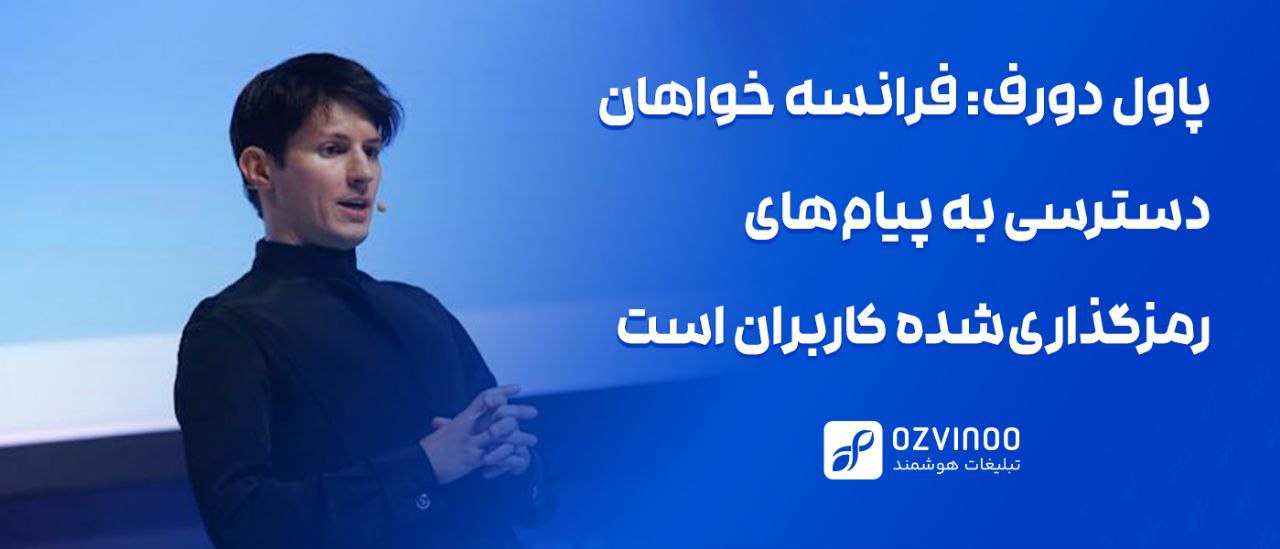Pavel Durov: France wants access to users' encrypted messages
عضوینو - Ozvinoo
18 May
French government asks Telegram
Following a series of security incidents in France, authorities have asked Telegram to provide them with information about users’ encrypted messages. This is particularly the case for certain groups and channels suspected of illegal or terrorist activities.
Pavel Dorof’s firm response
Pavel Dorof, who is known for his tough stance against governments and defending user privacy, was quick to respond to the request. He said:
“Telegram does not have any decryption keys for users’ chats. End-to-end encryption is literally the same, and even we do not have access to the content of the messages.”
The response shows that Telegram is not going to back down under political or security pressure.
What is end-to-end encryption?
End-to-end encryption is designed so that only the sender and recipient of a message can see its content. Even Telegram servers cannot read these messages. This method ensures the security of messaging, but governments are concerned about criminal use of this space.
The challenge between national security and privacy
In recent years, many countries have called for the creation of "backdoors" in encrypted applications to access messages in emergency situations. But this move has always been met with opposition from digital rights activists and technology companies. Because a backdoor allows not only the government but also hackers and cybercriminals to infiltrate.
Telegram and its commitment to users
Telegram has been threatened many times in different countries, but it has always defended the principle of protecting user security. Durov has emphasized in various interviews that if he had to choose between protecting user privacy and operating in a country, he would undoubtedly choose the first option.
⸻
Conclusion:
The French government’s request for access to Telegram users’ encrypted messages is a wake-up call for the future of digital freedoms. While national security concerns are important, privacy should not be sacrificed. Telegram, led by Pavel Durov, remains a leading defender of digital privacy. It remains to be seen whether political pressure can conquer this digital stronghold.